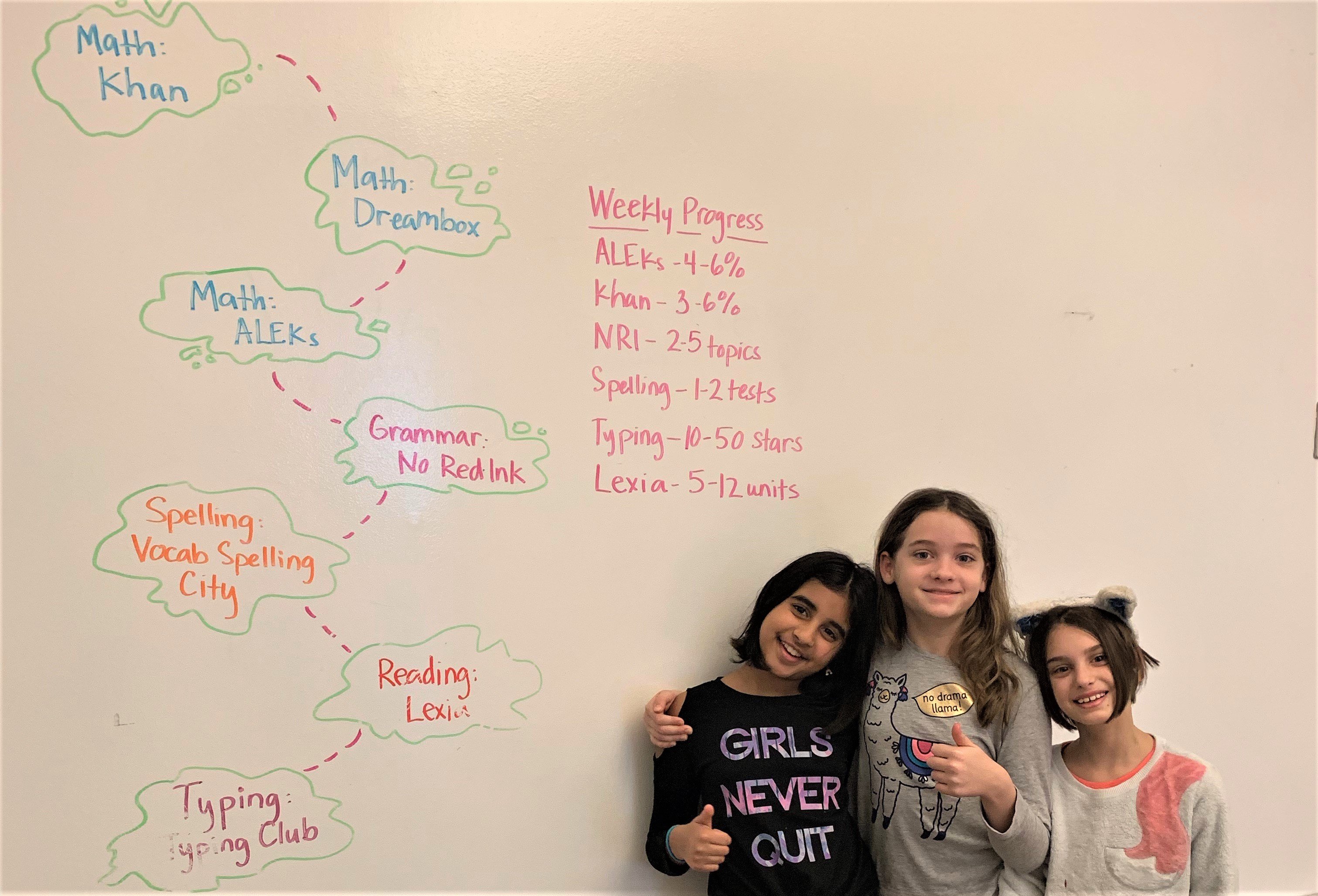 There are many ways learning is tracked in the elementary studio. Broadly speaking, learning is categorized in three ways: learning to learn, learning to do, and learning to be. LTL is factual knowledge and skills, LTD is the application of knowledge and skills to real-life situations, and LTB is the increased understanding of the self and the life one is leading based on evaluation and reflection. More specifically, learning is tracked through SMART goals, weekly progress meetings, badges, points, and now, weekly progress standards.
There are many ways learning is tracked in the elementary studio. Broadly speaking, learning is categorized in three ways: learning to learn, learning to do, and learning to be. LTL is factual knowledge and skills, LTD is the application of knowledge and skills to real-life situations, and LTB is the increased understanding of the self and the life one is leading based on evaluation and reflection. More specifically, learning is tracked through SMART goals, weekly progress meetings, badges, points, and now, weekly progress standards.
Every day at the beginning of core skills time, learners set SMART goals in their challenge zone. At the end of core skills time, learners complete the SMART goals by entering their progress. If they meet or exceed their goals, points are earned. One hour of focused work is worth about 20 points. Originally, learners had to reach a point goal in order to participate in Scholar’s Choice on Friday afternoons. Scholar’s Choice is a learner’s opportunity to expand their knowledge of a subject about which they are passionate; they can paint, read, practice a language, cook, or exercise. It’s also a mini-celebration of a week of hard work.
But points were proving to be an inaccurate and, at times, seemingly unfair representation of a learner’s work and progress that week. If a learner spends an hour practicing spelling, only to not pass the test at 100% and therefore earn zero points, is that an accurate assessment of determination, grit, and progress? If a learner spends most of the week working in Lexia, the reading program, because it’s in her comfort zone and has the highest potential for points earned, but does not make progress in any other program, does that align with the badge plan goals for the year? The learners thought definitely not.
So they decided to introduce a new process. While the learners continue to monitor points as one indicator of progress, they have created weekly progress standards for each of the seven online programs. For example, by the end of the week, a learner must increase three to six percent in Khan Academy and master two to five topics in No Red Ink, the grammar program. These ranges are in their challenge zone (just difficult enough to push them, but not so hard that they are too stressed to move forward) and give them a good idea of how much time they should be spending on each program to make progress across all subjects. The standards also reward perseverance; maybe on Tuesday you practiced for that spelling test and didn’t pass, but on Thursday you tried again and did. Now, if you meet the weekly progress standards, you are able to participate in Scholar’s Choice.
The new process has proven effective. Math percentages and grammar progress has increased while reading progress has stayed stable. The process will continue to be tweaked as learners move forward with their goals. Reflections have shown that flexibility and a wide definition of progress are great motivators for success.